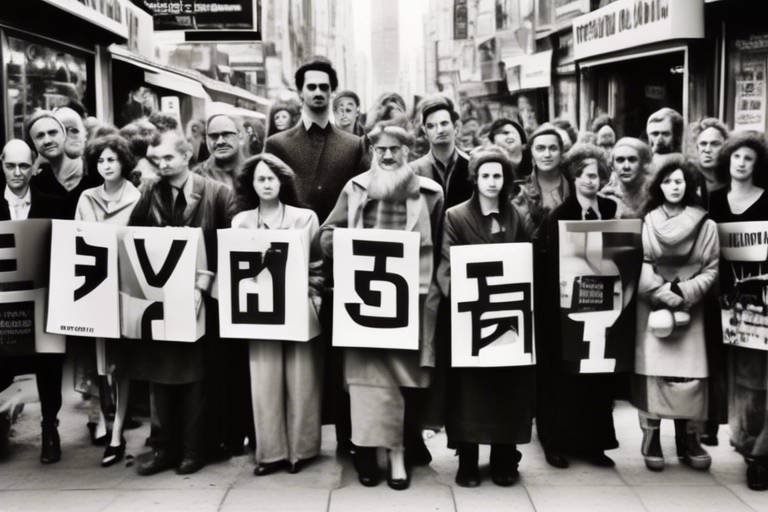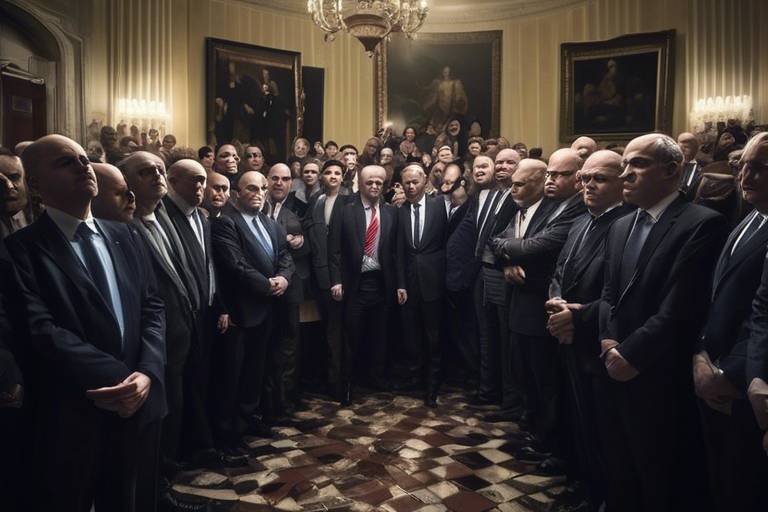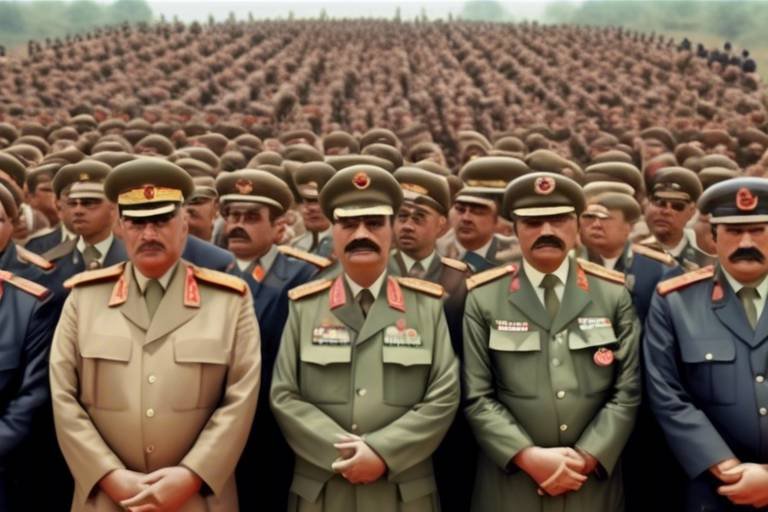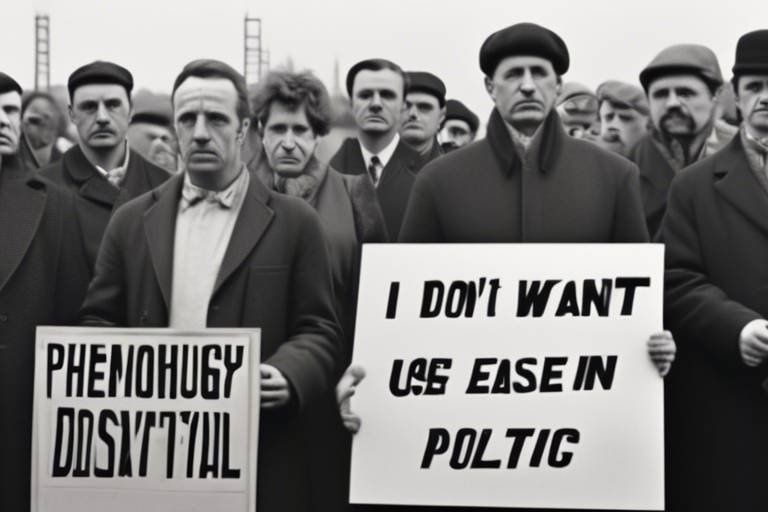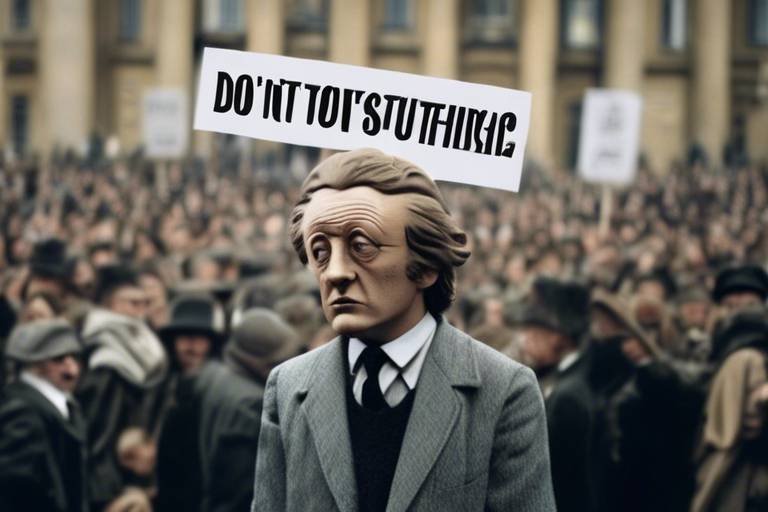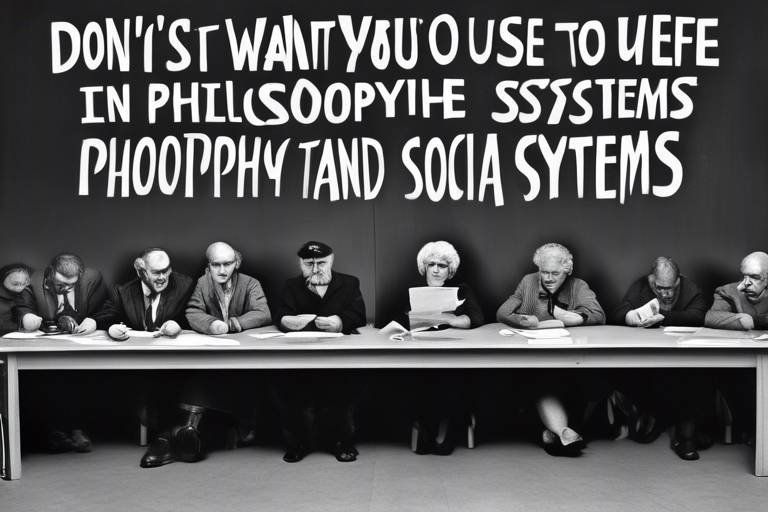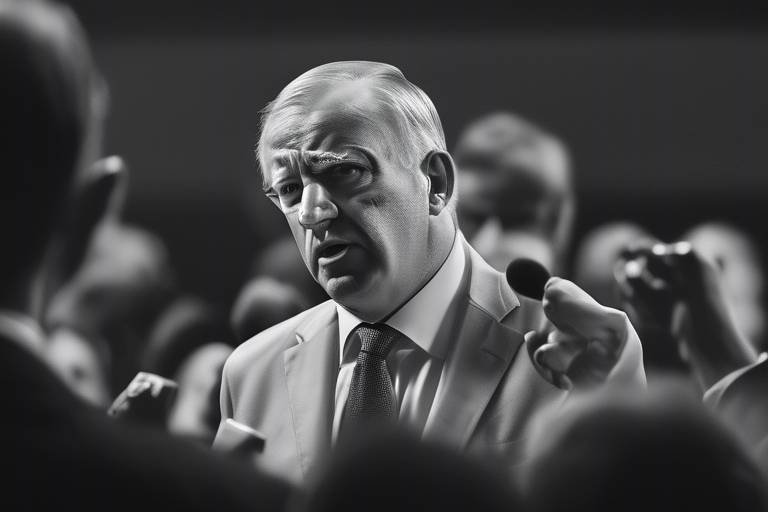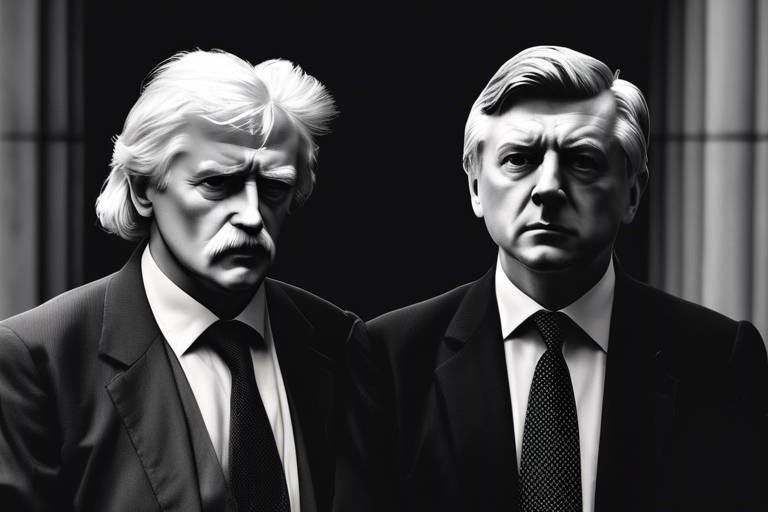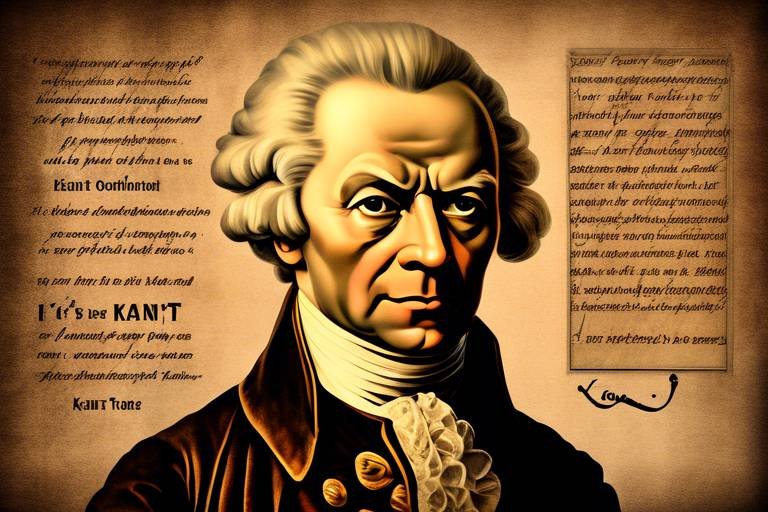Philosophy and Politics – Are they Interconnected?
The relationship between philosophy and politics is as intricate as a spider's web, woven with threads of thought that have shaped civilizations for centuries. At first glance, one might think of philosophy as a distant, abstract discipline, while politics appears to be a more pragmatic arena of power and governance. However, when we delve deeper, it becomes evident that these two fields are inextricably linked. Philosophical ideas not only inform political ideologies but also shape the very foundations of governance and societal structures.
Throughout history, philosophical thought has acted as a catalyst for political change, influencing everything from democratic principles to authoritarian regimes. For instance, the Enlightenment period brought forth ideas of liberty and equality that sparked revolutions across the globe. Thinkers like John Locke and Rousseau proposed radical ideas about the social contract and the rights of individuals, which directly challenged the existing political order. This interplay between thought and action raises a compelling question: can we truly understand politics without considering the philosophical ideas that underpin it?
Conversely, politics also shapes philosophy. The realities of governance, the struggles for power, and the quest for justice often lead philosophers to re-evaluate their theories and beliefs. The emergence of new political movements and ideologies forces philosophers to adapt their ideas to reflect the changing landscape of society. This dynamic relationship suggests that philosophy and politics are not just interconnected; they are in a constant state of dialogue, influencing and reshaping each other in profound ways.
As we explore the historical perspectives, key philosophers, and modern political philosophy, we will uncover how these two realms interact. By examining the contributions of influential thinkers like Plato and Aristotle, as well as contemporary figures such as John Rawls and Robert Nozick, we can better understand the complexities of this relationship. Ultimately, the inquiry into the connection between philosophy and politics is not just academic; it is essential for grasping the very nature of our societies and the challenges we face today.
- How does philosophy influence political ideologies?
Philosophy provides the foundational principles that shape political ideologies, influencing how societies view governance, justice, and individual rights. - Can political events reshape philosophical thought?
Yes, significant political events often prompt philosophers to reconsider their theories in light of new realities, leading to the evolution of thought. - Are there modern philosophers who impact politics today?
Absolutely! Contemporary thinkers like John Rawls and Robert Nozick continue to influence political discourse and policy-making.

Historical Perspectives
The relationship between philosophy and politics is as old as civilization itself, weaving a complex tapestry that reflects the evolution of human thought and governance. Throughout history, philosophical ideas have not only influenced political systems but have also been shaped by the political realities of their time. From ancient Greece to modern democracies, the interplay between these two domains has resulted in profound changes in how societies are structured and governed.
In ancient times, thinkers like Plato and Aristotle laid the groundwork for political philosophy by pondering the nature of justice, governance, and the role of citizens. Their inquiries were not merely academic; they sought to understand how societies could be organized to promote the common good. For instance, Plato's vision of an ideal state, where philosopher-kings rule based on wisdom and virtue, was a radical departure from the more chaotic democracies of his time. Similarly, Aristotle's empirical approach to studying various political systems highlighted the importance of practical governance and the role of the middle class in achieving stability.
As we moved into the medieval period, the influence of religion began to intertwine with political thought. Philosophers such as St. Augustine and later, St. Thomas Aquinas, introduced the idea that governance should align with divine principles. This led to a unique blend of theology and politics, where rulers were often seen as divinely ordained. The implications of this were profound, as it not only justified the authority of monarchs but also shaped the moral responsibilities of rulers towards their subjects.
Fast forward to the Enlightenment, a period that ignited a philosophical revolution. Thinkers like John Locke, Jean-Jacques Rousseau, and Thomas Hobbes challenged the established order, advocating for concepts like individual rights, social contracts, and popular sovereignty. Their ideas laid the foundation for modern democracy and human rights, emphasizing that the legitimacy of political power derives from the consent of the governed. The Enlightenment thinkers argued that a government's primary role is to protect the rights of its citizens, a notion that continues to resonate in contemporary political discourse.
In more recent history, the 20th century saw the emergence of various political ideologies, each grounded in philosophical principles. The rise of liberalism, socialism, and feminism can be traced back to philosophical debates about justice, equality, and the role of the state. These movements not only transformed political landscapes but also challenged existing power structures, advocating for the rights of marginalized groups. The civil rights movement, for example, drew heavily on philosophical arguments about equality and justice, demonstrating how philosophical ideas can inspire political action.
As we analyze these historical perspectives, it becomes evident that philosophy and politics are not isolated realms; they are deeply interconnected. Philosophical ideas have shaped political practices, while political realities have often prompted philosophical inquiry. This dynamic relationship continues to evolve, reflecting the changing needs and aspirations of societies around the world.
In summary, the historical perspectives on the interplay between philosophy and politics reveal a rich tapestry of ideas that have influenced governance and societal structures throughout time. Understanding this relationship is essential for grasping the complexities of contemporary political thought and practice.
- How have philosophical ideas influenced modern political systems?
Philosophical ideas have laid the groundwork for concepts such as democracy, justice, and individual rights, which are fundamental to modern political systems. - Are there any contemporary philosophers influencing politics today?
Yes, contemporary philosophers like John Rawls and Robert Nozick continue to shape political discourse with their theories on justice and individual rights. - What is the relevance of studying historical perspectives in philosophy and politics?
Studying historical perspectives helps us understand the evolution of political thought and provides context for current political ideologies and practices.

Key Philosophers
The world of political philosophy is rich and diverse, shaped by the thoughts and writings of numerous influential figures throughout history. These have not only defined political thought but have also left a lasting impact on how we understand governance, justice, and the role of the individual within society. To grasp the essence of political philosophy, one must delve into the works of these thinkers, each of whom has contributed unique insights that continue to resonate today.
Among the most notable figures is Plato, whose vision of an ideal state in The Republic introduced the concept of the philosopher-king—a ruler who possesses both wisdom and virtue. Plato believed that only those who truly understand the essence of justice should govern, as they are best equipped to create a harmonious society. His ideas challenge us to consider the moral responsibilities of leaders and the importance of education in cultivating virtuous citizens.
Then there’s Aristotle, a student of Plato, who offered a more pragmatic approach to political theory. Aristotle's work, Politics, emphasizes the significance of the community and the role of the citizen. He believed that the best form of government is one that promotes the common good, advocating for a balanced mix of democracy and oligarchy. His exploration of virtue ethics also highlights how personal character influences political life, suggesting that good governance stems from virtuous citizens.
Another pivotal figure is Machiavelli, whose work, The Prince, marked a departure from the idealism of his predecessors. Machiavelli argued for a realistic approach to politics, where the ends often justify the means. His ideas have sparked debate about the ethical implications of political power and the nature of human behavior in governance, making him a controversial yet essential figure in political philosophy.
To summarize the contributions of these key philosophers, the table below outlines their primary ideas and impacts:
| Philosopher | Key Ideas | Impact on Political Thought |
|---|---|---|
| Plato | Philosopher-kings, justice, ideal state | Emphasized the moral responsibilities of rulers and the importance of education. |
| Aristotle | Community, citizenship, virtue ethics | Promoted the idea of government for the common good and the role of virtuous citizens. |
| Machiavelli | Realism, power dynamics, political pragmatism | Introduced a pragmatic approach to politics, focusing on the effectiveness of rulers. |
In conclusion, the thoughts of these philosophers have woven a complex tapestry of political theory that continues to inform our understanding of governance today. Their ideas challenge us to reflect on the nature of power, justice, and the role of individuals within the political sphere. As we navigate the complexities of modern political landscapes, revisiting their works can offer valuable insights into the enduring questions of governance and societal structure.
- What is the main idea of Plato's political philosophy?
Plato's main idea revolves around the concept of the philosopher-king, advocating for rulers who possess wisdom and virtue to create a just society. - How does Aristotle's view differ from Plato's?
While Plato focused on idealism, Aristotle took a more pragmatic approach, emphasizing the importance of community and the role of virtuous citizens in governance. - What impact did Machiavelli have on political thought?
Machiavelli introduced a realistic approach to politics, suggesting that the ends often justify the means, which sparked debate about ethics in governance.
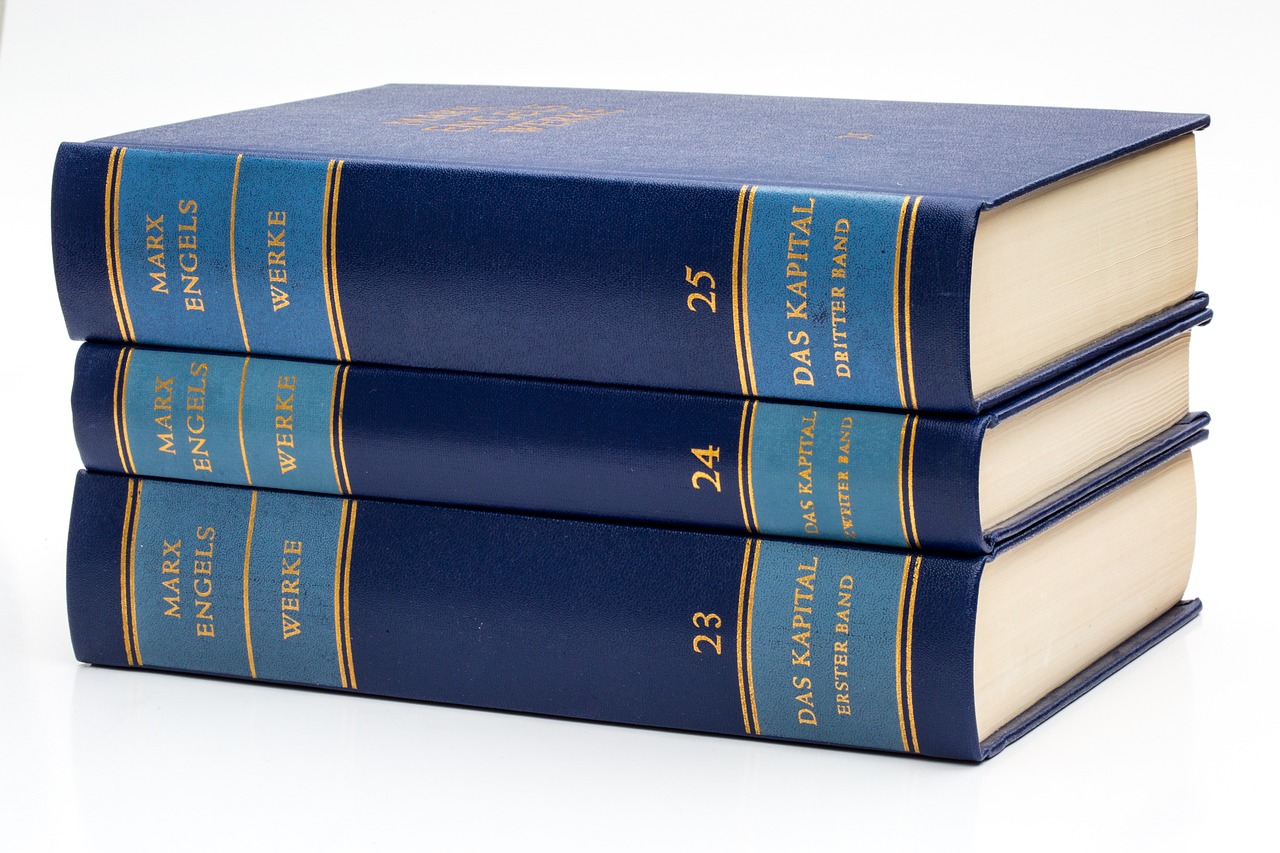
Plato's Ideal State
In the realm of political philosophy, Plato's vision of an ideal state stands as a monumental pillar that has influenced countless thinkers and political systems throughout history. His work, The Republic, presents a profound exploration of justice, governance, and the role of the individual in society. Plato proposed that the best form of government is led by philosopher-kings—wise rulers who possess both knowledge and virtue. This concept is not merely about political power; it is about the moral responsibility that comes with leadership. Imagine a society where leaders are not just politicians but are deeply knowledgeable individuals, committed to the welfare of their citizens. Wouldn't that be a refreshing change from the often self-serving nature of modern politics?
At the core of Plato's ideal state is the pursuit of justice. He argues that a just society is one where everyone performs their designated role, contributing to the overall harmony and balance of the community. This leads us to consider the essential question: what does it mean to be just? Plato believed that justice is not merely a legalistic framework but a fundamental virtue that should permeate every aspect of governance. In this ideal state, rulers are tasked with the responsibility of ensuring that justice prevails, which raises the stakes for those in power. The philosopher-king is expected to be a guardian of justice, making decisions that reflect the greater good rather than personal ambition.
Furthermore, Plato's theory of the soul plays a crucial role in his political philosophy. He posits that just as the soul comprises three parts—rational, spirited, and appetitive—so too should society be structured. Each class in his ideal state corresponds to these parts: the rulers (philosopher-kings) represent the rational aspect, the warriors embody the spirited nature, and the producers reflect the appetitive side. This tripartite structure emphasizes the importance of education and virtue, suggesting that only those who have undergone rigorous training and possess a strong moral compass should lead. How can we expect effective governance without leaders who are well-educated and virtuous?
In conclusion, Plato's ideal state is not just a theoretical construct; it serves as a blueprint for understanding the relationship between philosophy and governance. By advocating for philosopher-kings and a society rooted in justice, Plato challenges us to rethink our political structures and the qualities we value in our leaders. As we navigate the complexities of contemporary politics, his insights remain remarkably relevant, urging us to seek leaders who prioritize wisdom and virtue over mere popularity and power.
- What is Plato's ideal state? Plato's ideal state is a political system governed by philosopher-kings who prioritize justice and the common good.
- How does Plato define justice? For Plato, justice is the harmony achieved when each class in society performs its appropriate role.
- What role does education play in Plato's philosophy? Education is crucial for developing the virtues necessary for leadership, ensuring that rulers are knowledgeable and just.
- Why are philosopher-kings important? Philosopher-kings are vital because they combine wisdom with the moral obligation to govern justly, leading to a more harmonious society.

The Republic,
This article explores the intricate relationship between philosophy and politics, examining how philosophical ideas shape political thought and practice, and vice versa, throughout history and in contemporary society.
A look at how philosophical ideas have influenced political systems throughout history, showcasing key thinkers and movements that have shaped governance and societal structures.
An exploration of influential philosophers such as Plato, Aristotle, and Machiavelli, and their contributions to political theory, highlighting their lasting impact on modern political thought.
Examining Plato's vision of an ideal state in The Republic, focusing on the role of philosopher-kings and the pursuit of justice in governance.
A discussion on how Plato's concept of justice informs political legitimacy and the responsibilities of rulers in maintaining a just society.
Analyzing the connection between Plato's theory of the soul and his political philosophy, emphasizing the importance of education and virtue in leadership.
Investigating Aristotle's contributions to political philosophy, particularly his ideas on citizenship, virtue, and the best forms of government.
A review of contemporary political philosophy, focusing on key thinkers like John Rawls and Robert Nozick, and how their ideas challenge or build upon classical theories.
Discussing John Rawls' principles of justice and the concept of the veil of ignorance as a framework for evaluating political institutions and social justice.
Exploring Robert Nozick's libertarian critique of distributive justice, emphasizing individual rights and the minimal state in political philosophy.
Analyzing how philosophical ideas manifest in political practices and policies, influencing decision-making processes, governance styles, and public discourse.
Examining the role of ethical considerations in political decision-making, discussing the tension between moral philosophy and political expediency.
Investigating how philosophical underpinnings shape political ideologies, from liberalism and conservatism to socialism and anarchism, influencing party platforms and voter behavior.
In The Republic, Plato presents a profound dialogue that delves into the nature of justice and the ideal state. He argues for a society governed by philosopher-kings, who possess the wisdom and virtue necessary to rule justly. This concept challenges the traditional views of governance by placing emphasis on knowledge and morality over mere power. Plato’s ideal state is structured into three distinct classes: the rulers, the auxiliaries (warriors), and the producers (workers). Each class has its own role, contributing to the harmony and stability of the society as a whole.
Plato’s vision raises critical questions about the nature of justice and governance. He posits that true justice is achieved when each class performs its designated function without overstepping its bounds. This idea can be likened to a well-tuned orchestra, where each musician plays their part to create a harmonious symphony. In a similar vein, the philosopher-kings, equipped with knowledge of the Forms (the ultimate truths), are expected to guide the state toward the good life for all citizens.
Moreover, Plato introduces the allegory of the cave, illustrating the journey from ignorance to enlightenment. This allegory serves as a metaphor for the philosopher's role in society; just as the escaped prisoner comes to understand the true world outside the cave, philosopher-kings must grasp the deeper truths of existence to lead effectively. The implications of this allegory extend beyond mere governance, prompting us to consider our own perceptions of reality and the importance of education in achieving a just society.
- What is the main idea of Plato's The Republic?
Plato's The Republic primarily explores the concept of justice and proposes an ideal state governed by philosopher-kings. - How does Plato's philosophy influence modern politics?
Plato's ideas about governance, justice, and the role of knowledge continue to shape political thought and discussions about leadership today. - What are the three classes in Plato's ideal state?
The three classes are rulers (philosopher-kings), auxiliaries (warriors), and producers (workers), each contributing to the overall harmony of society. - What is the allegory of the cave?
The allegory illustrates the difference between the world of appearances and the world of reality, emphasizing the philosopher's journey toward enlightenment.

focusing on the role of philosopher-kings and the pursuit of justice in governance.
This article explores the intricate relationship between philosophy and politics, examining how philosophical ideas shape political thought and practice, and vice versa, throughout history and in contemporary society.
A look at how philosophical ideas have influenced political systems throughout history, showcasing key thinkers and movements that have shaped governance and societal structures.
An exploration of influential philosophers such as Plato, Aristotle, and Machiavelli, and their contributions to political theory, highlighting their lasting impact on modern political thought.
Examining Plato's vision of an ideal state in The Republic, focusing on the role of philosopher-kings and the pursuit of justice in governance.
In Plato's view, the concept of justice is not merely a societal construct but a fundamental principle that governs the ideal state. He argues that the rulers of this state should be philosopher-kings, individuals who possess both wisdom and virtue. This unique blend of qualities ensures that they are not swayed by personal desires or public opinion but are guided by a deeper understanding of justice. Plato believed that only those who have truly grasped the essence of justice can make decisions that benefit the entire community. This leads us to ponder: how can we ensure that our leaders embody these qualities today?
Analyzing the connection between Plato's theory of the soul and his political philosophy, we find that he emphasizes the importance of education and virtue in leadership. According to Plato, the soul consists of three parts: the rational, the spirited, and the appetitive. For a ruler to be just, they must have a well-ordered soul, where reason governs the other parts. This idea extends into governance; if leaders are educated in philosophy and virtue, they are more likely to create policies that reflect justice and enhance societal well-being. In this context, the philosopher-king is not just a ruler but a guardian of the state’s moral compass.
Investigating Aristotle's contributions to political philosophy, particularly his ideas on citizenship, virtue, and the best forms of government.
A review of contemporary political philosophy, focusing on key thinkers like John Rawls and Robert Nozick, and how their ideas challenge or build upon classical theories.
Discussing John Rawls' principles of justice and the concept of the veil of ignorance as a framework for evaluating political institutions and social justice.
Exploring Robert Nozick's libertarian critique of distributive justice, emphasizing individual rights and the minimal state in political philosophy.
Analyzing how philosophical ideas manifest in political practices and policies, influencing decision-making processes, governance styles, and public discourse.
Examining the role of ethical considerations in political decision-making, discussing the tension between moral philosophy and political expediency.
Investigating how philosophical underpinnings shape political ideologies, from liberalism and conservatism to socialism and anarchism, influencing party platforms and voter behavior.
- What is the role of philosopher-kings in Plato's ideal state?
Philosopher-kings are rulers who possess wisdom and virtue, ensuring that their governance is based on justice rather than personal gain.
- How does Plato’s concept of justice influence modern governance?
Plato's emphasis on justice as a guiding principle encourages contemporary leaders to prioritize the common good over individual interests.
- Why is education important for rulers according to Plato?
Education cultivates virtue and wisdom, enabling rulers to make informed decisions that reflect justice and benefit society.

Justice and Governance
When we dive into the depths of Plato's philosophy, we uncover a profound understanding of justice that is intricately tied to governance. Plato, in his seminal work The Republic, posits that a just society is not merely a collection of individuals but an organism where the rulers, or philosopher-kings, embody the principles of justice. This notion raises an intriguing question: can true governance exist without justice? Plato argues that it cannot. He believes that for a society to thrive, its leaders must possess not just knowledge but a deep understanding of the good. This aligns closely with the idea that the legitimacy of any political system hinges on its ability to uphold justice.
But what does justice mean in the context of governance? For Plato, justice is not just a legalistic concept; it is about harmony within the state. He suggests that a just society is one where each class—rulers, guardians, and producers—performs its role effectively and harmoniously. This leads us to consider how modern political systems reflect or diverge from these ideals. Are our current leaders, for instance, truly pursuing justice, or are they swayed by the winds of political expediency? The challenge remains: how do we ensure that our political structures promote justice rather than merely serve the interests of the powerful?
Moreover, Plato's insights into the responsibilities of rulers extend beyond mere governance. He emphasizes that those in power must be educated and virtuous, as their decisions directly impact the well-being of the entire society. This raises another critical point: the role of education in cultivating leaders who are not only knowledgeable but also morally grounded. In a world where political corruption and unethical behavior often dominate headlines, Plato's call for virtuous leadership serves as a reminder of the importance of ethical considerations in governance.
To better understand the relationship between justice and governance, we can explore the following key aspects:
- Legitimacy: The idea that rulers must have the consent of the governed, grounded in the pursuit of justice.
- Responsibility: The obligation of leaders to act in the best interest of their citizens, ensuring fairness and equity.
- Education: The necessity for rulers to be well-versed in philosophy and ethics to make informed decisions.
In summary, Plato's vision of justice is not a static concept but a dynamic force that shapes governance. By intertwining justice with the responsibilities of rulers, he provides a framework that challenges us to rethink how we view political authority today. As we navigate the complexities of modern governance, let us not forget the fundamental question that Plato poses: how can we create a political system that truly reflects the principles of justice?
- What is the relationship between justice and governance?
Justice is a foundational principle that underpins legitimate governance. It ensures that leaders act in the best interest of their citizens and maintain social harmony. - How did Plato view the role of leaders in a just society?
Plato believed that leaders, or philosopher-kings, must be educated and virtuous to govern effectively and uphold justice. - Why is education important for political leaders?
Education equips leaders with the knowledge and ethical grounding necessary to make informed and just decisions for society.

Philosophy of the Soul
When diving into Plato's philosophy, we encounter his profound exploration of the soul, which is not merely a metaphysical concept but a vital element in understanding his political theory. Plato believed that the soul is divided into three parts: the rational, the spirited, and the appetitive. Each part corresponds to different aspects of human nature and, intriguingly, to different classes within his ideal state. The rational soul, representing wisdom, is best suited for the philosopher-kings, who govern with knowledge and insight. The spirited part embodies courage and is associated with the warriors, while the appetitive soul, driven by desires and needs, corresponds to the producers. This tripartite division is not just an abstract notion; it serves as a blueprint for a well-ordered society.
In Plato's view, the health of the state is intrinsically linked to the health of the soul. He famously stated that "the just man is happier than the unjust man," suggesting that a well-ordered soul leads to a well-ordered society. This connection emphasizes the importance of education and virtue in leadership. To govern effectively, rulers must cultivate their rational souls through philosophical training, enabling them to discern the forms of justice and goodness. This pursuit of virtue is not just a personal endeavor; it has far-reaching implications for governance and the well-being of the entire community.
Moreover, Plato's theory of the soul underscores the necessity of moral education. He believed that individuals must be educated to understand their own souls and the roles they play within society. This education is not merely academic; it involves a deep engagement with ethical questions and the cultivation of virtues such as wisdom, courage, and temperance. By fostering these virtues, leaders can ensure that their decisions are not only strategically sound but also morally grounded. In this way, the philosophy of the soul intersects with practical politics, shaping the character of rulers and the nature of governance.
In conclusion, Plato's philosophy of the soul is a compelling reminder of the interconnectedness of personal virtue and public responsibility. It challenges us to consider: How can we cultivate our own souls to contribute positively to society? By reflecting on this question, we engage with the very essence of what it means to be a leader and a citizen in a just society.
- What is Plato's concept of the soul? Plato divided the soul into three parts: the rational, spirited, and appetitive, each representing different human qualities and societal roles.
- How does the philosophy of the soul relate to governance? Plato believed that the health of the soul directly impacts the health of the state, advocating for rulers to be educated in philosophy to make just decisions.
- Why is moral education important in Plato's philosophy? Moral education cultivates virtues necessary for effective leadership, ensuring that rulers act in the best interest of society.

Aristotle's Political Theory
Aristotle, one of the most influential philosophers in Western history, profoundly shaped political thought through his extensive writings. His approach to political theory is not just a mere collection of ideas; it's a comprehensive framework that examines the relationship between the individual and the state. Aristotle believed that politics is a natural extension of human behavior and societal organization. He famously stated, "Man is by nature a political animal," highlighting the intrinsic connection between human beings and their communal existence.
In his seminal work, Politics, Aristotle categorizes different forms of government and evaluates their effectiveness based on their ability to promote the common good. He distinguishes between three ideal forms of government—monarchy, aristocracy, and polity—each representing a just rule by one, few, and many, respectively. However, he also warns against their corrupt forms: tyranny, oligarchy, and democracy, which prioritize the interests of the rulers over the welfare of the populace. This duality illustrates Aristotle's belief that the structure of governance must align with the moral character of its citizens.
One of the cornerstones of Aristotle's political theory is his concept of citizenship. He argues that true citizenship is not merely a legal status but a role filled with responsibilities and virtues. Citizens should actively participate in governance, contributing to the political community's well-being. Aristotle emphasizes the importance of virtue in political life, asserting that a good citizen must possess moral and intellectual virtues to make informed decisions for the common good. This notion resonates with the idea that a healthy political system relies on the character of its citizens, echoing through centuries of political discourse.
To further elaborate on Aristotle's political theory, we can examine his classification of governments in the following table:
| Type of Government | Just Form | Corrupt Form |
|---|---|---|
| Rule by One | Monarchy | Tyranny |
| Rule by Few | Aristocracy | Oligarchy |
| Rule by Many | Polity | Democracy |
Moreover, Aristotle's emphasis on the common good is crucial in understanding his political philosophy. He believed that the purpose of the state is to facilitate a good life for its citizens, which means that laws and policies should promote virtue and moral development. This idea challenges modern political systems that often prioritize individual rights over collective responsibilities. Aristotle's vision encourages a balance between personal freedoms and societal obligations, a concept that remains relevant today as we navigate complex political landscapes.
In conclusion, Aristotle's political theory offers a rich tapestry of ideas that continue to influence contemporary political thought. His insights into citizenship, virtue, and the nature of government challenge us to reflect on our roles within society. As we engage with political systems today, Aristotle's emphasis on the common good and the moral character of citizens serves as a guiding principle, urging us to strive for a more just and virtuous society.
- What is the main idea of Aristotle's political theory? Aristotle's political theory emphasizes the importance of virtue and citizenship in governance, advocating for a political system that promotes the common good.
- How does Aristotle classify governments? Aristotle classifies governments into three ideal forms—monarchy, aristocracy, and polity—and their corrupt forms—tyranny, oligarchy, and democracy.
- Why is virtue important in Aristotle's political philosophy? Virtue is essential because Aristotle believes that a good citizen must possess moral and intellectual virtues to contribute positively to the political community.
- What role does the common good play in Aristotle's theory? The common good is central to Aristotle's theory, as he argues that the state exists to facilitate a good life for its citizens through laws and policies that promote virtue.

Modern Political Philosophy
Modern political philosophy is a fascinating landscape where traditional ideas meet contemporary challenges. In the past few centuries, thinkers have grappled with the complexities of justice, rights, and the role of the state in our lives. This exploration is not just an academic exercise; it has real-world implications that affect how we govern ourselves and interact with one another. Key figures like John Rawls and Robert Nozick have emerged as pivotal voices in this dialogue, each offering unique perspectives that continue to influence political thought today.
At the heart of modern political philosophy is a quest for justice. John Rawls, in particular, revolutionized the way we think about fairness in society with his groundbreaking work, A Theory of Justice. His principles advocate for a system where social and economic inequalities are arranged to benefit the least advantaged members of society. This concept resonates deeply in discussions about wealth distribution and social welfare, challenging us to rethink the structures we often take for granted.
Rawls introduced the idea of the veil of ignorance, a thought experiment that asks us to design a society without knowing our own position within it. Imagine if you were to create a world without knowing whether you'd be rich or poor, powerful or powerless. Wouldn't you want to ensure that the basic rights and opportunities are guaranteed for everyone? This approach encourages a more empathetic understanding of justice, pushing us to consider the implications of our political decisions on all members of society.
On the flip side, we have Robert Nozick, who offers a compelling critique of distributive justice. In his influential work, Anarchy, State, and Utopia, Nozick argues for a minimal state that protects individual rights but does not engage in wealth redistribution. He contends that any attempt to redistribute wealth is a violation of personal freedom. This libertarian perspective emphasizes individual rights and autonomy, raising questions about the balance between personal freedom and societal responsibility.
The clash between Rawls' and Nozick's philosophies encapsulates a broader debate in modern political thought. Should the government play an active role in redistributing resources to achieve fairness, or should it primarily safeguard individual freedoms? This tension is not just theoretical; it manifests in policy debates, electoral platforms, and everyday discussions about the role of government in our lives.
In addition to Rawls and Nozick, modern political philosophy has been enriched by various other thinkers who have challenged traditional ideas. Feminist theorists, for instance, have critiqued established political frameworks for their lack of inclusivity, advocating for a political discourse that recognizes the experiences and rights of women. Similarly, environmental philosophers are reshaping our understanding of justice to include future generations and the planet, urging us to consider sustainability in our political agendas.
As we navigate these complex ideas, it becomes clear that modern political philosophy is not just an academic pursuit; it's a vital part of our collective consciousness. The debates initiated by these thinkers help us understand our values and priorities as a society. They encourage us to engage critically with the world around us and challenge us to envision a future that aligns with our ethical beliefs.
- What is modern political philosophy?
Modern political philosophy examines the ideas and principles that shape political thought and practice today, focusing on justice, rights, and the role of the state. - Who are the key figures in modern political philosophy?
Key figures include John Rawls, Robert Nozick, and various feminist and environmental philosophers, each contributing unique perspectives on justice and governance. - What is the veil of ignorance?
The veil of ignorance is a thought experiment by John Rawls that asks individuals to design a society without knowing their own position in it, promoting fairness and empathy in decision-making. - How do Rawls and Nozick differ in their views?
Rawls advocates for redistributive justice to benefit the least advantaged, while Nozick argues for a minimal state focused on protecting individual rights without wealth redistribution.

Rawls' Theory of Justice
John Rawls, a pivotal figure in modern political philosophy, introduced a revolutionary approach to justice that continues to resonate in contemporary discourse. At the heart of his theory lies the concept of the veil of ignorance, a thought experiment that challenges us to consider fairness in a society stripped of biases. Imagine, for a moment, that you are tasked with designing a social contract without knowing your own place within that society. Would you not strive for a system that guarantees basic rights and opportunities for all, regardless of their circumstances? This hypothetical scenario compels us to think about justice not merely as a set of rules, but as a commitment to equity and fairness.
Rawls articulates two fundamental principles of justice that emerge from this veil of ignorance:
- The First Principle: Each person is to have an equal right to the most extensive basic liberties compatible with similar liberties for others.
- The Second Principle: Social and economic inequalities are to be arranged so that they are both to the greatest benefit of the least advantaged and attached to offices and positions open to all under conditions of fair equality of opportunity.
These principles are not just theoretical musings; they form the backbone of Rawls' vision of a just society. The first principle emphasizes the importance of individual rights, ensuring that everyone has the freedom to pursue their own conception of the good life. This echoes the sentiments of classical liberalism, yet Rawls goes further by embedding social justice into the framework.
The second principle introduces a crucial element: the idea that inequalities are acceptable only if they benefit the least advantaged members of society. This notion is particularly powerful as it challenges us to reconsider how we view wealth and power. Instead of accepting disparities as a natural order, Rawls invites us to question their legitimacy and to advocate for systems that uplift the marginalized. It’s a call to action, urging us to create a society that prioritizes the welfare of its most vulnerable citizens.
Rawls' theory has sparked extensive debate and analysis, influencing not just philosophers but also policymakers and activists. Critics argue that his framework may be too idealistic, while supporters contend that it provides a robust foundation for addressing contemporary issues of inequality, social justice, and human rights. In essence, Rawls encourages us to reflect on our values and the kind of society we wish to cultivate.
In conclusion, John Rawls' Theory of Justice is more than an academic exercise; it’s a profound invitation to engage in the moral dimensions of our political systems. By advocating for fairness and prioritizing the least advantaged, Rawls’ ideas challenge us to envision a world where justice is not just an abstract concept, but a lived reality for all. As we navigate the complexities of modern governance, his insights remain a beacon for those striving to create a more equitable society.
- What is the veil of ignorance? The veil of ignorance is a thought experiment proposed by John Rawls that asks individuals to design a society without knowing their own social status, ensuring fairness in their decisions.
- What are Rawls' two principles of justice? The first principle emphasizes equal basic liberties for all, while the second allows for inequalities only if they benefit the least advantaged members of society.
- How does Rawls' theory relate to contemporary issues? Rawls' emphasis on fairness and social justice provides a framework for addressing modern challenges such as economic inequality and human rights advocacy.

veil of ignorance
This article explores the intricate relationship between philosophy and politics, examining how philosophical ideas shape political thought and practice, and vice versa, throughout history and in contemporary society.
A look at how philosophical ideas have influenced political systems throughout history, showcasing key thinkers and movements that have shaped governance and societal structures.
An exploration of influential philosophers such as Plato, Aristotle, and Machiavelli, and their contributions to political theory, highlighting their lasting impact on modern political thought.
Examining Plato's vision of an ideal state in The Republic, focusing on the role of philosopher-kings and the pursuit of justice in governance.
A discussion on how Plato's concept of justice informs political legitimacy and the responsibilities of rulers in maintaining a just society.
Analyzing the connection between Plato's theory of the soul and his political philosophy, emphasizing the importance of education and virtue in leadership.
Investigating Aristotle's contributions to political philosophy, particularly his ideas on citizenship, virtue, and the best forms of government.
A review of contemporary political philosophy, focusing on key thinkers like John Rawls and Robert Nozick, and how their ideas challenge or build upon classical theories.
Discussing John Rawls' principles of justice and the concept of the as a framework for evaluating political institutions and social justice.
The is a powerful thought experiment introduced by John Rawls in his seminal work, A Theory of Justice. Imagine for a moment that you are tasked with designing a society, but you have no idea what position you will occupy within it. You could be rich or poor, healthy or sick, educated or uneducated. This thought experiment encourages decision-makers to create policies that are fair and just, as they would be crafting rules without any knowledge of their own circumstances. This leads to a more equitable society, as it compels individuals to consider the needs of the most disadvantaged.
By placing oneself behind the , you prioritize fairness over personal advantage. Rawls argues that rational individuals would choose principles that ensure basic rights and liberties for all, thereby promoting social cooperation and mutual respect. This concept challenges us to think beyond our own biases and privileges, fostering a more inclusive political dialogue. In practical terms, the serves as a guiding principle for evaluating laws and policies, encouraging lawmakers to consider their effects on the least advantaged members of society.
Analyzing how philosophical ideas manifest in political practices and policies, influencing decision-making processes, governance styles, and public discourse.
Examining the role of ethical considerations in political decision-making, discussing the tension between moral philosophy and political expediency.
Investigating how philosophical underpinnings shape political ideologies, from liberalism and conservatism to socialism and anarchism, influencing party platforms and voter behavior.
- What is the veil of ignorance?
The veil of ignorance is a thought experiment proposed by John Rawls that encourages individuals to design a just society without knowledge of their own social status or personal circumstances.
- How does the veil of ignorance promote fairness?
By removing personal biases, the veil of ignorance leads decision-makers to prioritize the needs of the most disadvantaged, resulting in fairer policies and social structures.
- Can the veil of ignorance be applied in real-world politics?
Yes, the veil of ignorance can serve as a guiding principle for lawmakers and leaders, encouraging them to consider the broader impact of their decisions on all citizens, especially the vulnerable.

as a framework for evaluating political institutions and social justice.
This article explores the intricate relationship between philosophy and politics, examining how philosophical ideas shape political thought and practice, and vice versa, throughout history and in contemporary society.
A look at how philosophical ideas have influenced political systems throughout history, showcasing key thinkers and movements that have shaped governance and societal structures.
An exploration of influential philosophers such as Plato, Aristotle, and Machiavelli, and their contributions to political theory, highlighting their lasting impact on modern political thought.
Examining Plato's vision of an ideal state in The Republic, focusing on the role of philosopher-kings and the pursuit of justice in governance.
A discussion on how Plato's concept of justice informs political legitimacy and the responsibilities of rulers in maintaining a just society.
Analyzing the connection between Plato's theory of the soul and his political philosophy, emphasizing the importance of education and virtue in leadership.
Investigating Aristotle's contributions to political philosophy, particularly his ideas on citizenship, virtue, and the best forms of government.
A review of contemporary political philosophy, focusing on key thinkers like John Rawls and Robert Nozick, and how their ideas challenge or build upon classical theories.
Discussing John Rawls' principles of justice and the concept of the veil of ignorance as a framework for evaluating political institutions and social justice.
Rawls' theory is quite revolutionary, as it asks us to consider what a just society would look like if we were to design it without knowing our own position within it. Imagine you’re at a party, but you’re blindfolded and don’t know if you’re the host or a guest. How would you set the rules for the party? This is the essence of the veil of ignorance. It forces us to think about fairness and justice in a way that strips away our biases and personal interests.
In practical terms, Rawls suggests that when evaluating political institutions, we should ask ourselves:
- Do these institutions ensure basic rights for all individuals?
- Are they structured to benefit the least advantaged members of society?
- Do they promote equality of opportunity?
By applying this framework, we can critically assess whether our current political systems truly uphold principles of justice or if they merely serve the interests of a privileged few. This perspective has profound implications for social justice movements, as it encourages advocates to push for policies that genuinely reflect these ideals.
Exploring Robert Nozick's libertarian critique of distributive justice, emphasizing individual rights and the minimal state in political philosophy.
Analyzing how philosophical ideas manifest in political practices and policies, influencing decision-making processes, governance styles, and public discourse.
Examining the role of ethical considerations in political decision-making, discussing the tension between moral philosophy and political expediency.
Investigating how philosophical underpinnings shape political ideologies, from liberalism and conservatism to socialism and anarchism, influencing party platforms and voter behavior.
- How does philosophy influence modern politics?
Philosophy provides the foundational ideas that inform political ideologies and practices, shaping the way societies govern themselves. - What is the veil of ignorance?
The veil of ignorance is a thought experiment proposed by John Rawls that encourages individuals to design a just society without knowledge of their own social status. - Who are some key philosophers in political thought?
Key figures include Plato, Aristotle, John Rawls, and Robert Nozick, each contributing unique perspectives on governance and justice.

Nozick's Libertarianism
Robert Nozick, a prominent figure in contemporary political philosophy, is best known for his work “Anarchy, State, and Utopia”, where he presents a compelling case for libertarianism. His ideas challenge the traditional notions of distributive justice, which often emphasize the need for state intervention to ensure equality and fairness. Instead, Nozick argues that individual rights and freedoms should take precedence, advocating for a minimal state whose primary role is to protect these rights.
At the core of Nozick's libertarianism is the concept of self-ownership. He posits that individuals have the right to control their own bodies and lives, which leads to the idea that any form of taxation beyond what is necessary for the protection of rights is essentially a form of theft. This radical stance raises important questions about the relationship between individual liberty and the role of government. For Nozick, the state should only exist to provide security and uphold contracts, leaving individuals free to pursue their own interests without interference.
To illustrate his philosophy, Nozick introduces the idea of the “night-watchman state”, a government limited to protecting citizens from force, theft, and fraud. This minimalist approach stands in stark contrast to more expansive views of government, which advocate for extensive social welfare programs and redistributive policies aimed at achieving greater equality. In Nozick's view, such policies violate the rights of individuals who have earned their wealth through hard work and innovation.
Furthermore, Nozick presents the concept of the “entitlement theory”, which outlines how property rights should be determined. According to this theory, individuals are entitled to their holdings if they were acquired justly—meaning through voluntary exchange or legitimate transfer. This framework not only emphasizes the importance of consent in economic transactions but also highlights the moral implications of ownership and wealth distribution. Nozick argues that any attempt to redistribute wealth undermines the principles of justice and fairness that underpin a free society.
However, Nozick's libertarianism is not without its criticisms. Detractors argue that his focus on individual rights overlooks the social responsibilities that come with living in a community. Critics also contend that a purely libertarian framework may fail to address systemic inequalities that can arise in a free market, potentially leading to the marginalization of vulnerable populations. These debates continue to shape discussions on the role of government and the nature of justice in modern society.
In summary, Nozick's libertarianism offers a provocative perspective on the relationship between individual rights and state power. By advocating for a minimal state and emphasizing the importance of self-ownership, he challenges us to reconsider the role of government in our lives. As we navigate the complexities of contemporary political discourse, Nozick’s ideas remain a vital part of the conversation about freedom, justice, and the moral foundations of political authority.
- What is Nozick's main argument in "Anarchy, State, and Utopia"?
Nozick argues for a minimal state that protects individual rights and opposes redistributive justice as a violation of property rights. - How does Nozick's view differ from John Rawls' theory of justice?
While Rawls emphasizes fairness and equality, Nozick focuses on individual rights and self-ownership, advocating for less state intervention. - What is the "night-watchman state" concept?
The "night-watchman state" refers to a government that exists solely to protect citizens from harm and enforce contracts, without engaging in welfare or redistributive policies.

Philosophy in Political Practice
The intersection of philosophy and politics is not merely an academic exercise; it is a dynamic relationship that shapes the very fabric of our societies. When we talk about philosophy in political practice, we're diving into how abstract ideas influence concrete actions and policies. This relationship can be seen in various ways, from the ethical frameworks that guide decision-making to the ideological underpinnings that inform party platforms. Have you ever wondered how a philosopher's thoughts can lead to real-world changes in governance? It’s like planting a seed that grows into a towering tree, providing shade and shelter to many.
Philosophy serves as a compass for political leaders, helping them navigate the murky waters of governance. For instance, ethical considerations often come into play during critical decision-making processes. Politicians might face dilemmas where they must choose between what is politically expedient and what is morally right. This tension can lead to a crisis of conscience, prompting leaders to reflect on their philosophical beliefs. A classic example can be seen in the debates surrounding human rights. Should a government prioritize national security over individual freedoms? The philosophical discourse surrounding such questions is rich and varied, often leading to heated debates in the public sphere.
Moreover, the influence of philosophy extends to the formation of political ideologies. Different schools of thought—such as liberalism, conservatism, socialism, and anarchism—are deeply rooted in philosophical principles. For example, liberalism champions individual rights and freedoms, drawing heavily from Enlightenment thinkers like John Locke. In contrast, socialism emphasizes collective ownership and the redistribution of wealth, echoing the ideas of Karl Marx. Understanding these philosophical foundations allows voters to make informed choices and align themselves with parties that reflect their values.
To illustrate the influence of philosophy on political practice, consider the following table that outlines key political ideologies and their philosophical roots:
| Political Ideology | Philosophical Roots | Key Principles |
|---|---|---|
| Liberalism | John Locke, John Stuart Mill | Individual rights, freedom, equality |
| Conservatism | Edmund Burke | Tradition, social stability, gradual change |
| Socialism | Karl Marx, Friedrich Engels | Collective ownership, economic equality |
| Anarchism | Mikhail Bakunin, Emma Goldman | Anti-authoritarianism, self-governance |
As we navigate the complexities of modern governance, it's crucial to recognize that philosophical ideas are not just theoretical musings; they are the bedrock of political action. The debates that arise from these philosophical questions often shape public discourse and influence policy decisions. For instance, discussions about climate change often involve ethical considerations about our responsibility to future generations. Should we prioritize economic growth over environmental sustainability? The philosophical underpinnings of these debates can lead to significant shifts in public policy.
In conclusion, the interplay between philosophy and political practice is a profound and ongoing dialogue. As citizens, being aware of this connection empowers us to engage more thoughtfully with political issues. Whether we are voting, advocating for change, or simply discussing current events, understanding the philosophical roots of political ideologies can enhance our perspective and deepen our engagement in the democratic process. So, the next time you ponder a political issue, ask yourself: what philosophical principles are at play here?
- How does philosophy influence political decision-making? Philosophy provides ethical frameworks that guide leaders in making choices that align with their values and the needs of society.
- What are the main political ideologies influenced by philosophy? Major political ideologies include liberalism, conservatism, socialism, and anarchism, each rooted in distinct philosophical traditions.
- Can philosophical debates change political policies? Yes, philosophical discussions often shape public discourse, leading to changes in policies and governance based on ethical considerations and societal values.

Ethics in Politics
When we dive into the world of politics, one question often looms large: What role does ethics play in decision-making? It's a complex dance, where the ideals of morality often clash with the gritty realities of governance. Imagine a tightrope walker, balancing precariously between the demands of the electorate and the moral imperatives that guide their actions. This tension creates a fascinating yet challenging landscape for politicians.
At its core, political ethics examines the principles that govern the conduct of public officials and the moral implications of political decisions. This field is not just about following the law; it’s about understanding the “why” behind those laws and the impact they have on society. Politicians often find themselves in situations where they must choose between what is legally permissible and what is morally right. For instance, consider the dilemma of a leader who must decide whether to cut funding for essential services to balance a budget. The legal route may favor fiscal responsibility, but the ethical route begs the question: What about the well-being of the most vulnerable?
In practice, ethical considerations in politics can manifest in various ways:
- Transparency: Voters expect honesty and openness from their leaders. A lack of transparency can lead to distrust and cynicism, eroding the very foundation of democratic governance.
- Accountability: Politicians must be held accountable for their actions. This means not only answering to their constituents but also being willing to face consequences for unethical behavior.
- Integrity: Upholding personal and professional integrity is crucial. Politicians who prioritize ethical standards often foster a culture of trust and respect among their constituents.
However, the relationship between ethics and politics is not straightforward. Political expediency often pushes leaders to make decisions that are beneficial in the short term but detrimental in the long run. This is where the concept of moral philosophy comes into play. Philosophers like Immanuel Kant emphasized the importance of duty and principles, suggesting that actions should be guided by moral laws rather than consequences. In contrast, utilitarian thinkers like John Stuart Mill argued for a more pragmatic approach, focusing on the outcomes of actions to determine their ethical standing.
As we navigate this intricate landscape, it's crucial to recognize that ethical dilemmas are not merely theoretical. They play out in real-time, affecting policies that shape our lives. For example, debates around healthcare reform often hinge on ethical questions about access and equity. Should a government prioritize universal healthcare, even if it means higher taxes? Or should it allow market forces to dictate healthcare access, potentially leaving the most vulnerable without necessary services? These questions illustrate the profound impact of ethical considerations on political practice.
In conclusion, the interplay between ethics and politics is a dynamic and ongoing dialogue. As citizens, we must engage with these discussions, demanding that our leaders not only act within the law but also uphold the highest ethical standards. After all, a healthy democracy thrives on the principles of justice, accountability, and integrity. As we continue to explore the world of political philosophy, let’s keep these ethical questions at the forefront of our minds, ensuring that our political leaders are not just effective but also ethical.
- What is political ethics? Political ethics refers to the principles that govern the conduct of public officials and the moral implications of political decisions.
- Why is ethics important in politics? Ethics is crucial in politics as it fosters trust, accountability, and integrity, ensuring that leaders act in the best interest of their constituents.
- How do ethical dilemmas affect political decision-making? Ethical dilemmas can create conflicts between legal obligations and moral responsibilities, influencing the choices politicians make in governance.

Philosophy and Ideology
When we dive into the world of political ideologies, it’s like peeling back layers of an onion—each layer revealing deeper insights into how we view governance and society. At the core of these ideologies lie philosophical principles that shape our beliefs about justice, rights, and the role of the state. From the liberal emphasis on individual freedom to the collectivist ideals of socialism, philosophy acts as the bedrock upon which political ideologies are built. But how do these abstract ideas translate into real-world policies and party platforms? Let’s explore this fascinating connection.
Philosophy provides the framework for understanding the fundamental questions of governance. For instance, consider the debate between liberalism and conservatism. Liberals often advocate for social justice and equality, rooted in the philosophical ideas of thinkers like John Locke, who emphasized natural rights and the social contract. On the other hand, conservatives tend to prioritize tradition and social stability, drawing from philosophical traditions that value order and hierarchy. This ideological tug-of-war is not just academic; it profoundly influences how laws are made, how resources are allocated, and how societies evolve.
Moreover, the influence of philosophy on ideology is not limited to just the mainstream political spectrum. Radical ideologies such as anarchism and fascism also have philosophical underpinnings that challenge conventional norms. Anarchists, for example, derive their beliefs from a deep skepticism of authority, often citing philosophers like Mikhail Bakunin, who argued that the state is inherently oppressive. Conversely, fascism, with its emphasis on strong, centralized power, can be traced back to philosophical ideas that glorify the state above the individual, drawing on the works of figures such as Giovanni Gentile.
To better understand these connections, let’s take a closer look at how some key ideologies are shaped by their philosophical roots:
| Ideology | Philosophical Roots | Key Thinkers |
|---|---|---|
| Liberalism | Individual freedom, equality, social contract | John Locke, John Stuart Mill |
| Conservatism | Tradition, hierarchy, social stability | Edmund Burke, Russell Kirk |
| Socialism | Collective ownership, social justice | Karl Marx, Friedrich Engels |
| Anarchism | Skepticism of authority, voluntary association | Mikhail Bakunin, Emma Goldman |
| Fascism | Nationalism, strong centralized power | Giovanni Gentile, Benito Mussolini |
As we can see, the interplay between philosophy and ideology is not just a theoretical exercise; it has real implications for how societies are structured and governed. Political parties often adopt these ideologies as their platforms, shaping the laws and policies that affect our daily lives. This is why understanding the philosophical foundations behind these ideologies is crucial for anyone looking to engage in political discourse or activism.
In conclusion, the relationship between philosophy and ideology is a dynamic one, constantly evolving as new ideas emerge and old ones are challenged. It’s a reminder that our political beliefs are not just personal opinions; they are deeply rooted in a rich tapestry of philosophical thought that has been developed over centuries. So, the next time you find yourself debating political issues, remember to consider the philosophical underpinnings that inform your views—after all, philosophy and ideology are two sides of the same coin.
- How do philosophical ideas influence political ideologies? Philosophical ideas provide the foundational beliefs that shape political ideologies, influencing how societies view governance, justice, and individual rights.
- Can political ideologies change over time? Yes, political ideologies can evolve as societal values shift and new philosophical ideas emerge, reflecting changes in public opinion and cultural contexts.
- What role do philosophers play in shaping political thought? Philosophers critically analyze and challenge existing political beliefs, offering new perspectives that can lead to the development of new ideologies.
Frequently Asked Questions
- How are philosophy and politics connected?
Philosophy and politics are deeply intertwined; philosophical ideas often shape political ideologies and practices. Thinkers like Plato and Aristotle laid the groundwork for understanding governance, justice, and the role of citizens, which continue to influence modern political thought.
- What role did Plato play in political philosophy?
Plato significantly impacted political philosophy through his concept of the ideal state, as described in The Republic. He introduced the idea of philosopher-kings, emphasizing that rulers should possess wisdom and virtue to maintain a just society.
- What are Aristotle's contributions to political theory?
Aristotle expanded on political thought by focusing on citizenship, the nature of virtue, and the best forms of government. His analysis of different political systems and the importance of civic participation laid the foundation for future political theories.
- Who are some key modern political philosophers?
Modern political philosophy features influential thinkers like John Rawls and Robert Nozick. Rawls is known for his theory of justice, which introduces the "veil of ignorance" concept, while Nozick critiques distributive justice from a libertarian perspective, emphasizing individual rights.
- How do philosophical ideas manifest in political practice?
Philosophical ideas influence political practice by shaping policies, governance styles, and public discourse. Ethical considerations often play a crucial role in political decision-making, creating a tension between moral philosophy and the practicalities of governance.
- What is the significance of ethics in politics?
Ethics in politics is vital as it guides the moral compass of leaders and policymakers. Ethical considerations can impact decisions on social justice, governance, and the public good, challenging politicians to balance personal beliefs with the needs of society.
- How do philosophical ideologies influence political parties?
Philosophical ideologies shape political parties by providing foundational beliefs that guide their platforms and policies. For example, liberalism, conservatism, socialism, and anarchism each stem from different philosophical roots, affecting voter behavior and party dynamics.




